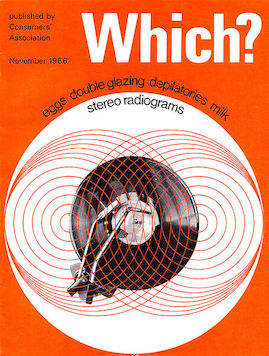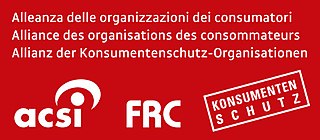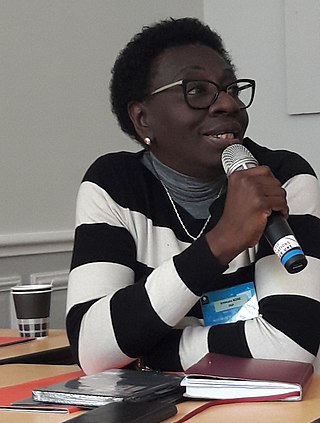
Which? is a United Kingdom brand name that promotes informed consumer choice in the purchase of goods and services by testing products, highlighting inferior products or services, raising awareness of consumer rights, and offering independent advice. The brand name is used by the Consumers' Association, a registered charity and company limited by guarantee that owns several businesses, including Which? Financial Services Limited, Which? Legal Limited and Which? Limited, which publishes the Which? Papers.

The European Committee for Standardization is a public standards organization whose mission is to foster the economy of the European Single Market and the wider European continent in global trading, the welfare of European citizens and the environment by providing an efficient infrastructure to interested parties for the development, maintenance and distribution of coherent sets of standards and specifications.
An extended warranty, sometimes called a service agreement, a service contract, or a maintenance agreement, is a prolonged warranty offered to consumers in addition to the standard warranty on new items. The extended warranty may be offered by the warranty administrator, the retailer or the manufacturer. Extended warranties cost extra and for a percentage of the item's retail price. Some extended warranties that are purchased for multiple years state in writing that during the first year, the consumer must still deal with the manufacturer in the occurrence of malfunction. Thus, what is often promoted as a five-year extended guarantee, for example, is actually only a four-year guarantee.
International Consumer Research & Testing (ICRT) is a global consortium of more than 40 consumer organisations dedicated to carrying out joint research and testing in the consumer interest.
Most commonly known as CHOICE, the Australian Consumers' Association is an Australian not for profit consumer advocacy organisation. It is an independent membership based organisation founded in 1959 that researches and campaigns on behalf of Australian consumers. It is similar to the Consumers Union in the United States and Which? in the United Kingdom, who are considered sister organisations. It is the largest consumer organisation in Australia.
Consumers International is the membership organization for consumer groups around the world. Founded on 1 April 1960, it has over 250 member organizations in 120 countries. Its head office is situated in London, England, and has numerous regional offices in Latin America, Asia Pacific, Middle East and Africa.
A peak organisation or peak body is an Australian term for an advocacy group or trade association, an association of industries or groups with allied interests. They are generally established for the purposes of developing standards and processes, or to act on behalf of all members when lobbying government or promoting the interests of the members.
Option consommateurs is a non-profit consumer organization dedicated to promoting and defending the interests of Canadian consumers.
A super-complaint is a complaint made in the UK by a state-approved "super-complainant"/watchdog organisation on behalf of consumers, which was fast-tracked to a higher authority such as the Office of Fair Trading. The official body now in charge of general consumer protection super-complaints is the Competition and Markets Authority.
Advocacy groups, also known as lobby groups, interest groups, special interest groups, pressure groups, or public associations, use various forms of advocacy or lobbying to influence public opinion and ultimately public policy. They play an important role in the development of political and social systems.
Consumer protection in the United Kingdom is effected through a multiplicity of Acts of Parliament, statutory instruments, the work of various government agencies and departments, and citizens' lobby groups. It aims to ensure the market economy produces fairness and quality in the goods and services people buy. The main areas of regulating consumer affairs include:
The Fiji Consumers Association (FCA) is a non-profit, voluntary civil society group in the Fiji Islands. The association is registered under Fiji's Charitable Trust Act and is principally based in Suva, Fiji's capital city. The FCA is the only non-government and voluntary consumer organisation in Fiji, and actively participates in activities of the consumer movement in Fiji under the leadership of the statutory consumer agency - Consumer Council of Fiji.

The European Consumer Organisation, from the French name Bureau Européen des Unions de Consommateurs, "European Bureau of Consumers' Unions") is an umbrella consumers' group, founded in 1962. Based in Brussels, Belgium, it brings together 45 European consumer organisations from 32 countries.
The consumer movement is an effort to promote consumer protection through an organized social movement, which is in many places led by consumer organizations. It advocates for the rights of consumers, especially when those rights are actively breached by the actions of corporations, governments, and other organizations that provide products and services to consumers. Consumer movements also commonly advocate for increased health and safety standards, honest information about products in advertising, and consumer representation in political bodies.

The Swiss Alliance of Consumer Organisations, founded in 2010, is the umbrella organisation of the three Swiss consumer organisations:
The Finnish Competition and Consumer Authority is the Competition regulator in Finland. It is the regulatory authority of Politics of Finland which works in the field of competition and consumer rights protection. The purpose of the Finnish Competition and Consumer Authority is to create healthy and effective markets in which companies and other operators act responsibly and in keeping with consumers' interests.

Aminata Koné is a French lawyer and activist of Ivorian descent for affordable family housing. She has been the vice-president of the Abbé Pierre Foundation for Affordable Housing, the general secretary of the family advocacy union Confédération syndicale des familles, and a member of the French Economic, Social and Environmental Council. She is a Chevalier (Knight) of the Legion of Honour, and an Officier (Officer) of the Ordre national du Mérite.








